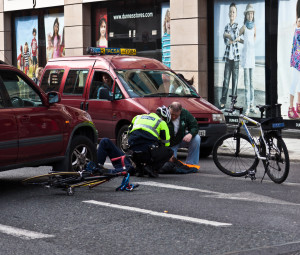 Hopefully, you will never have to deal with a collision on your bicycle, but you should be prepared to pick up the pieces if it happens. Luckily, the vast majority of bicycle accidents on the road result only in minor injuries. But even when you escape an accident with only minor injuries, you will have to deal with insurance, bike repairs, and potentially a traffic citation. Knowing what to do beforehand is crucial to protecting yourself after in the event of a crash.
Hopefully, you will never have to deal with a collision on your bicycle, but you should be prepared to pick up the pieces if it happens. Luckily, the vast majority of bicycle accidents on the road result only in minor injuries. But even when you escape an accident with only minor injuries, you will have to deal with insurance, bike repairs, and potentially a traffic citation. Knowing what to do beforehand is crucial to protecting yourself after in the event of a crash.
Keep Yourself Safe
You are especially exposed and vulnerable on a roadway. The most important thing after an accident is your own health and safety. If you are thrown from your bike and find yourself on the ground, try not to move until someone can check you for spinal injuries if you suspect something major could be wrong.
If you think you have a broken bone, try not to move that part of your body. If you are in immediate danger, however, get yourself to safety straight away, and stay still to wait for medical professionals. If no one else has done so, call 911.
We would recommend that you don’t refuse medical assistance, though ultimately that is up to you. You might have dangerous, hidden injuries. Also, if you need to make a personal injury claim later, it is useful to have accurate professional documentation of the extent of your injuries.
Even if you are not treated on site, you should get any injuries treated by your personal physician as soon as possible to establish an official record of your injuries.
Record the Details
If another vehicle, whether another bike or a car, is involved in your collision, you need to exchange insurance information with the other driver or cyclist. Just as in any other road collision, you should write down the license numbers, names, and addresses of all parties involved. You should also record the names of their insurance companies, which should be on their vehicle registration. Take pictures of the entire scene if you have a camera.
Get photographs of important details including:
- Damage to your bike
- Damage to other vehicles
- Locations of all vehicles after the crash, if possible
- Skid marks
- Any other damage to the surroundings
Your pictures will help to paint a picture of the accident so the facts won’t be disputed later.
Choose Your Words Carefully
Do not try to negotiate with others involved in the accident. Do not admit guilt or accuse anyone else at the scene of the accident; responsibility will be determined later. Wait for police officers to arrive and make an official report. Cooperate with officers as they conduct their investigation, but do not admit fault or apologize. Just describe the events as accurately as you can without making claims about responsibility.
Repair Your Bike
Sometimes the damage to your bike is obvious, but even if it isn’t, make sure to get your bike checked out. Inconspicuous damage can dangerously  weaken your bike. Small cracks in your frame (especially in carbon fiber components) may cause your frame to collapse from vibrations or stress while you are riding. Minor brake damage could prevent you from stopping. Even if there is little or no obvious damage, you need to check thoroughly to ensure that your bike is still road-worthy.
weaken your bike. Small cracks in your frame (especially in carbon fiber components) may cause your frame to collapse from vibrations or stress while you are riding. Minor brake damage could prevent you from stopping. Even if there is little or no obvious damage, you need to check thoroughly to ensure that your bike is still road-worthy.
If the other driver is at fault, their insurance should cover repairs to your bicycle. If this is the case, be sure to tell your bike mechanic that you will not be paying out of pocket. Your mechanic may try to save you money by fixing parts that should be replaced. If another driver is at fault, you deserve a complete replacement of your bicycle and parts. If your bicycle can be repaired for a reasonable price, it should be repaired with new parts. If it is totaled, the insurance of the at-fault driver should provide a replacement or compensation.
Deal with Insurance
As soon as you can, make contact with the insurance companies of all parties involved. Answer questions truthfully, but be careful not to be pressured into admitting guilt or taking responsibility for anything. If you are found to be at fault, you will not be able to recover damages from another driver’s insurance company. If an insurance company asks you for a recorded statement, decline politely. Such a statement could be used against you later. If you feel that an insurance company is likely to deny your claim, you will probably need legal counsel. The Utah Bicycle Accident Handbook can help you handle insurance companies and know when to call a lawyer.
Images courtesy of William Murphy and Leon Wilson via Flickr
